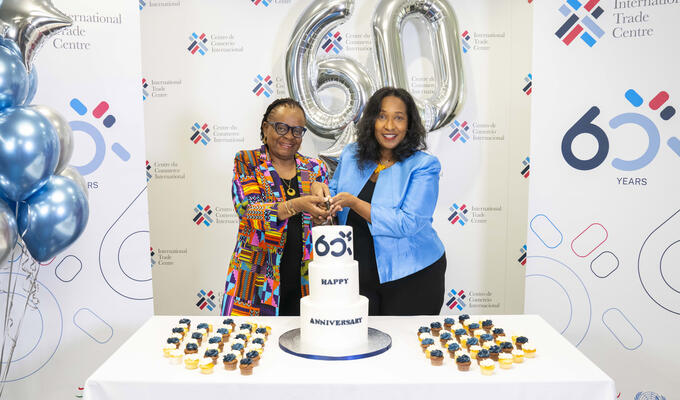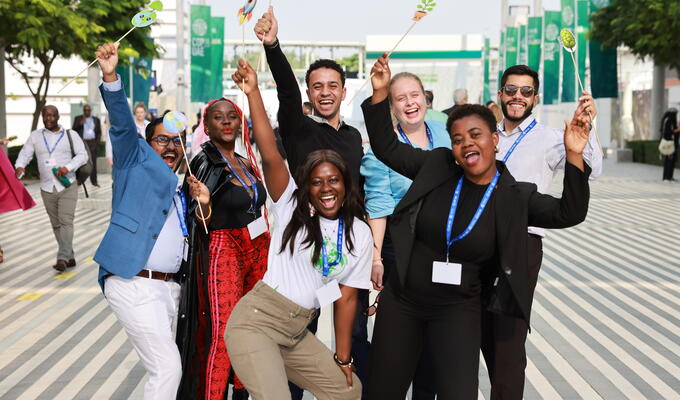


After all, it is all about the human impact!
This year, the International Trade Centre (ITC) marks its 60th anniversary. Since its creation in 1964, we have sought to respond to what trade looks like in practice and how to make it better, recognizing that trade is, first and foremost, about people.
In our early years, that meant providing trade and market intelligence, which means one of the key components of our work. But over time, we’ve expanded what we do as we’ve seen the full depth and breadth of what trade means for small businesses, and why environmental sustainability, social inclusion, and digital connectivity are critical to their success.
But while we may be 60 years old, in many ways our work is only just beginning. Too often, the benefits of trade still lie out of reach, especially for small businesses in ITC’s priority countries. Value addition is easier said than done, and regional integration and South-South trade and investment are efforts that take not just time, but extensive investments. These are challenging tasks in the best of circumstances, but today’s poly-crisis world has left us all with a large mountain to climb.
Having six decades of work now behind us has, however, taught us what works well and why. It has reinforced for ITC that our mission and mandate of making trade more connected, sustainable, and inclusive for small businesses is essential for a better future, both for ourselves and those generations still to come. This is why this Trade Forum edition is dedicated to ITC’s 60th anniversary, focused on the transformation that still lies ahead.
We reflect on where we’ve been and look at where we’re going, speaking along the way with three former Executive Directors, alongside our partners and beneficiaries.
Our parent organizations, the World Trade Organization and UN Trade and Development, highlight the ever-important role of multilateralism and their visions for how trade can help shape the world.
The UN Environment Programme advocates for the market opportunities that the end of plastics pollution will bring, while the Government of the Netherlands reflects on our partnership to digitalize the agriculture sector sustainably and thus impacting lives and livelihoods for millions in Africa.
Mastercard updates us about their work in supporting women and young refugees with access to finance so they can find business opportunities, whereas the International Institute for Sustainable Development looks at our climate crisis and how the trade, biodiversity, and green development agendas can be mutually supportive, with small businesses as agents of change.
Trade Forum would not be what it is without our entrepreneurial multimedia highlights. That’s why we paid a visit to our World Export Development Forum’s first pitch contest winner Michael Okansey of Agrocenta, who now offers digital financial services to smallholder farmers across Ghana, and spoke to Youth Ecopreneur Finalist Tamara Gondo from Indonesia, the CEO of Liberty Society, a social enterprise that supports women refugees with decent work opportunities.
Lastly, our own staff reflects on lessons learned in our major EU-EAC Market Access Upgrade Programme in East Africa as its second phase takes off, takes a deep dive into the current cocoa crisis in Ghana, and gives a preview of a new programme on Indigenous Peoples in trade that builds on our commitment to inclusion.
All these contributions reflect that we have come a long way, but an even longer journey lies ahead of us to truly transform trade, and thus change lives for the better. We hope you can join us in making this journey possible.




AntoineTardy_004-web (2).jpg?itok=jh8UGS2R)